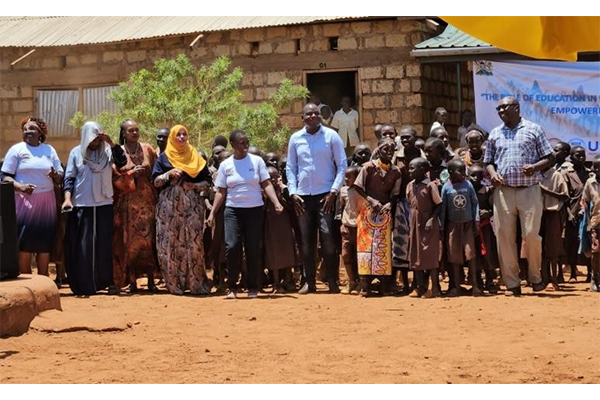Empowering Resilience: Isiolo’s Youth Lead the Way in Disaster Risk Reduction
Isiolo County, like much of Northern Kenya, has borne the brunt of recurrent droughts, and nowhere is this hardship felt more acutely than among vulnerable populations. Children, youth, women, the elderly, and persons with disabilities have become familiar with the devastating impacts of water scarcity, food insecurity, and heightened risks of gender-based violence during prolonged droughts.
Yet, amid these challenges, the event was a celebration of hope and a call to action, focusing on equipping the next generation with the tools they need to confront these disasters head-on.
Representatives from various organizations, including NGEC, USAID, Action Against Hunger, the Meteorological Department, and faith- based and civil society organizations, were in attendance, reaffirming their commitment to empowering communities.
The gathering highlighted the essential role schools play in shaping resilient futures, underscoring that education is not just about imparting knowledge but about safeguarding lives. Schools, it was emphasized, must be safe havens, spaces where children can not only learn but also be protected from the looming threats of disaster.
For the students of Akadeli Primary School, the day's activities were a blend of learning and empowerment. The importance of early warning systems was driven home, with the message clear: knowledge is power, and timely access to information can save lives. For Northern Kenya’s youth, understanding the risks they face and knowing how to act in times of crisis is no longer a luxury—it is a necessity.
But the day was not just about awareness; it was about inclusion. NGEC's presence at the event was a powerful statement, reinforcing the Commission’s commitment to protecting Special Interest Groups (SIGs) in disaster risk reduction (DRR) efforts.
Children with disabilities, young girls, and other marginalized groups are often the most affected when disasters strike, and yet, they are too often left out of conversations on disaster preparedness. This is a reality NGEC is determined to change. Through advocacy and policy interventions, the Commission ensures that vulnerable groups are not just beneficiaries of DRR strategies but active participants in shaping them.
As the day's discussions unfolded, it became evident that protecting children and youth from disasters, particularly within the school environment, must be a priority. Schools, after all, are the heart of communities, and by safeguarding them, entire families and neighborhoods can be shielded from the worst effects of disasters. The call for child-centered DRR policies echoed throughout the event, with speakers emphasizing the need for governments and organizations to integrate the unique needs and vulnerabilities of children into disaster preparedness and climate adaptation plans.
The event also shone a spotlight on successful disaster risk reduction strategies that have already taken root across the region. From early warning systems that alert communities before a drought worsens, to school programs that educate young people on climate resilience, there were many stories of triumph shared. Yet, the underlying message was clear: more needs to be done. Every child, regardless of their background, deserves the right to safety, security, and a voice in decisions that affect their future.
By the end of the day, the air was filled with a renewed sense of purpose. As the children of Akadeli Primary School made their way home, they carried with them not just the lessons learned, but a new sense of empowerment. In a world where disasters are becoming more frequent and severe, equipping the next generation with the knowledge and tools to confront these challenges is not just an act of education—it is an investment in the future.
In Isiolo, that future may still be fraught with uncertainties, but as the IDDRR commemoration revealed, it is also full of hope. Through the collective efforts of NDMA, NGEC, and all the stakeholders involved, there is a growing belief that even the most vulnerable communities can become resilient.
Isiolo Office Regional Head Nahashon Lotaruk (center) engages with participants at the forum, fostering collaboration and dialogue for a brighter future.


Comments